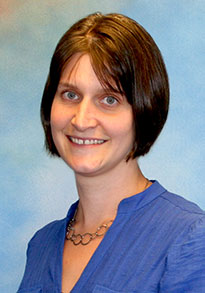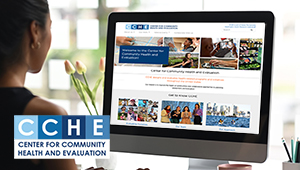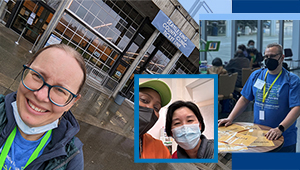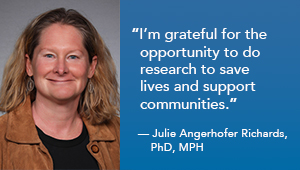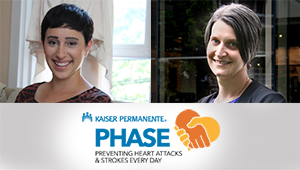Healthy Communities
Research overview
Health is about more than health care. Where people live can have a profound influence on daily choices that can promote population health — or harm it. Kaiser Permanente Washington Health Research Institute (KPWHRI) scientists work to improve and sustain community conditions that support health and equity.
At KPWHRI’s Center for Community Health and Evaluation (CCHE) we are working with foundations, nonprofit organizations, and government agencies to evaluate their community health improvement initiatives. A few examples:
- Former CCHE director Allen Cheadle led a 10-year evaluation of Kaiser Permanente’s efforts to prevent obesity, including projects in more than 60 communities that promoted healthy eating and active living, largely through policy and environmental changes.
- CCHE principal investigators Emily Bourcier and Lisa Schafer are leading an evaluation of the Strong, Prosperous, and Resilient Communities Challenge (SPARCC) — an ambitious, multifunder initiative to improve the way changes in the built environment advance racial equity, health, and climate resilience in 6 U.S. regions.
- CCHE leads the evaluation of several initiatives to strengthen health care safety net organizations in California, including programs addressing trauma-informed care, chronic disease management, and population health management.
CCHE serves as the evaluation partner for Kaiser Permanente Washington’s (KPWA) Community Health and Benefit program, providing evaluation and strategic support for a wide range of regional initiatives, including built environment improvements in the community, school-based health centers, and healthy eating/active living programming for teachers. Beyond CCHE, other KPWHRI researchers are exploring opportunities to improve population health by creating healthier communities. Among these efforts are:
- Associate investigator Dori Rosenberg, PhD, MPH, is investigating how the built environment can better encourage walking and other movement, especially for older adults and those who have limited mobility.
- Associate investigator Clarissa Hsu, PhD, led LINCC, a project that tested a new community resource specialist (CRS) role in primary care clinics at KPWA. CRSs are now part of primary care teams at all KPWA clinics. They help patients set health goals and connect them with health-promoting resources in their own neighborhoods, including YMCAs, community centers, and farmers markets.
- Senior investigator David Arterburn, MD, MPH, and colleagues from the University of Washington and from KPWHRI including Paula Lozano, MD, MPH, Andrea Cook, PhD, Jennifer Bobb, PhD, and Dr. Rosenberg are studying characteristics of neighborhoods that are most effective in encouraging healthy habits, such as walking, biking, and eating healthy. They are studying how neighborhoods may influence long-term health outcomes.
- KPWHRI researchers have also examined the link between diabetes prevalence and neighborhood characteristics such as home value and education levels. They have also studied how other social and environmental factors affect health.
Answering questions about what makes a healthy environment gives policymakers, urban planners, and others the information they need to create healthier communities in the future.
Recent Publications on Healthy Communities
Cheadle A, Rauzon S, Spring R, Schwartz PM, Gee S, Gonzalez E, Ravel J, Reilly C, Taylor A, Williamson D. Kaiser Permanente's Community Health Initiative in Northern California: evaluation findings and lessons learned. Am J Health Promot. 2012;27(2):e59-68. doi: 10.4278/ajhp.111222-QUAN-462. PubMed
Kerr J, Carlson J, Rosenberg DE, Withers A. Identifying and promoting safe walking routes in older adults. Health. 2012;4:720-4. doi: 10.4236/health.2012.429112. PubMed
Rosenberg DE, Kerr J, Sallis JF, Norman GJ, Calfas K, Patrick K. Promoting walking among older adults living in retirement communities. J Aging Phys Act. 2012;20(3):379-94. Epub 2011 Dec 20. PubMed
Kumanyika S, Brownson RC, Cheadle A. The L.E.A.D. Framework: using tools from evidence-based public health to address evidence needs for obesity prevention. Prev Chronic Dis. 2012;9:E125. Epub 2012 Jul 12. PubMed
Cromp D, Cheadle A, Solomon L, Maring P, Wong E, Reed KM. Kaiser Permanente's farmers' market program: description, impact, and lessons learned. J Agr Food Sys Comm Dev. 2012 2(2):29-36. PubMed
our cche team
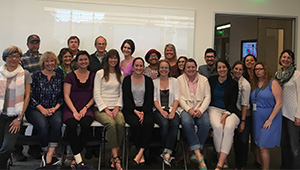
Researchers in Healthy Communities
 Allen Cheadle, PhDSenior Investigator, KPWHRI; Senior Research Associate, CCHE |
 Clarissa Hsu, PhDAssociate Investigator |
 Dori E. Rosenberg, PhD, MPHSenior Investigator |
 Maricela Cruz, PhDAssistant Biostatistics Investigator |
 Nicole M. Gatto, PhD, MPHPrincipal Collaborative Scientist |
 Meagan C. Brown, PhD, MPHAssistant Investigator |
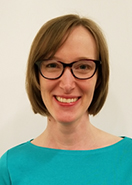 Kimberly Arthur, MPHCollaborative Scientist |
Affiliate researchers in healthy communities
David Grembowski, PhD
Professor, Health Services and Oral Health Sciences
University of Washington

